

MSM (methylsulfonylmethane) is gaining increasing attention as a dietary supplement thanks to its diverse applications for health and well-being. However, as with any supplement, many people ask: Is MSM really safe? Can side effects occur, and how can the risk be minimized? In this article, we therefore take a close look at its safety and potential side effects – so that you can make an informed decision for yourself as to whether MSM could be a beneficial addition to your daily routine.
Here you will learn...
The most important points in brief
MSM is a natural sulfur compound that supports many important functions in the body.
MSM side effects are rare and usually mild.
To avoid MSM side effects, it is recommended to start with small doses and observe the body's reaction.
What is MSM?
MSM ( methylsulfonylmethane ) is an organic sulfur compound that occurs naturally in small amounts in various foods such as fruits, vegetables, grains, and dairy products. In the form of dietary supplements, MSM is valued primarily for its diverse applications (1).
There are now numerous studies that examine the effects of MSM on various areas, including its effects on bone health, acid-base balance, immune function, and much more.

What side effects can occur with MSM?
Overall, MSM is considered to be well-tolerated , based on both preclinical and clinical studies. Even at high doses, no serious side effects of MSM were observed in animal studies.
A similar picture emerges in human studies : In one study, patients with knee osteoarthritis received 3,375 mg daily for a period of twelve weeks without any complaints or undesirable MSM side effects occurring (2).
In another study, an almost twice as high dose was administered. Isolated MSM side effects occurred in this study, including:
- Flatulence
- Digestive problems
- fatigue
- Headache
- Concentration problems
However, these symptoms were also observed with comparable frequency in the placebo group. This suggests that they may be triggered not only by MSM, but also by other factors (3).

How does the dosage affect possible MSM side effects?
There is currently no uniform recommendation for the exact dosage of MSM. In clinical studies, the recommended doses vary between 200 mg and 6000 mg per day, depending on the intended use. Dosages of up to 3375 mg daily were generally well tolerated. At higher doses, particularly around 6000 mg daily, mild MSM side effects such as gastrointestinal discomfort have occasionally been observed.
The US Food and Drug Administration (FDA) considers MSM to be safe: A preparation with a daily dose of 4.8 g was officially classified with GRAS status (“Generally Recognized As Safe”) in 2007 (4).
As with many dietary supplements, MSM side effects can vary from person to person. The necessary dosage depends on individual factors such as health status, metabolism, and the specific application goal.
How can I recognize an MSM overdose?
The good news first : So far, there is no evidence that MSM is toxic or causes side effects at typical doses. Toxicological studies (on animals) have shown remarkably good tolerability even at very high doses.
For example, single doses of 2 g per kg body weight were well tolerated by rats. Long-term administration of 1.5 g/kg body weight over 90 days also resulted in no adverse effects (5). Only at extremely high doses of 15.4 g per kilogram of body weight over two days were serious consequences observed (6).
These findings demonstrate that an acute overdose of MSM is extremely unlikely in healthy individuals with short-term use. Nevertheless, it is advisable to adhere to the recommended dosages to minimize potential MSM side effects.
Are there any interactions between MSM and medications?
To date, no clear interactions of MSM with other medications have been demonstrated in clinical trials. However, there is some evidence from animal studies and theoretical considerations suggesting that caution may be warranted.
Therefore, the intake of MSM, especially when taken concurrently with blood thinners or painkillers, should always be medically supervised (3).
Overall, the data available so far indicate a good safety profile for MSM, especially compared to many conventional medications that can cause significantly stronger side effects.

Can MSM cause intolerances or contraindications?
Currently, there is no conclusive evidence that MSM causes intolerances or that there are clear contraindications where its use should be strictly avoided. However, it is suspected that in rare cases there may be individual limitations, for example, in certain metabolic disorders.
It is recommended to seek medical advice before taking MSM. This will allow you to determine whether MSM is suitable for you and discuss potential risks or interactions.

Proper intake to avoid MSM side effects
There are now numerous MSM supplements on the market. To find the right product for you and avoid potential MSM side effects, it's important to pay attention to quality and ingredients. Make sure to choose a supplement that doesn't contain unnecessary additives and meets high quality standards .
This is how you can easily and safely integrate MSM into your everyday life
- Consult your doctor or alternative practitioner to clarify individual risks and possible interactions.
- Start with a small dose and observe how your body reacts - only increase the amount if necessary.
- Spread the dose throughout the day to ensure better tolerability.
- For those with a sensitive stomach, it is recommended to take MSM with a meal.
Our recommendation
Conclusion
MSM, a natural source of sulfur, is becoming increasingly popular as a dietary supplement. Generally, its consumption is considered safe and only very rarely causes side effects. Nevertheless, it's important to pay attention to your body's individual reactions and choose the dosage carefully to avoid potential discomfort. Even though no serious interactions are currently known, you should consult your doctor if you are taking medication concurrently. This way, you can use MSM in a targeted and responsible way to benefit from its positive effects – without taking unnecessary risks.
Our expert
What is MSM and what is it used for?
MSM (methylsulfonylmethane) is a natural sulfur compound that is often used as a dietary supplement.
What side effects can occur when taking MSM?
Side effects are rare, but may include mild digestive problems, fatigue, or headaches.
What is the recommended dosage of MSM?
Typical dosages range from 200 mg to 6,000 mg per day, with 2,000 to 3,500 mg usually being well tolerated.
Is it possible to overdose on MSM?
An overdose is very unlikely, however, extremely high doses can cause gastrointestinal problems. Therefore, adhere to the dosage instructions.
Are there any interactions between MSM and medications?
No clear interactions are known so far, but the intake of blood thinners and painkillers should be discussed with a doctor.
How can I avoid MSM side effects?
Start with a low dose, increase it slowly, and ideally take MSM with meals.
References for further reading:
- Toguchi A, Noguchi N, Kanno T, Yamada A. Methylsulfonylmethane Improves Knee Quality of Life in Participants with Mild Knee Pain: A Randomized, Double-Blind, Placebo-Controlled Trial. Nutrients 2023; 15(13).
- Debbi EM, Agar G, Fichman G, Ziv YB, Kardosh R, Halperin N, et al. Efficacy of methylsulfonylmethane supplementation on osteoarthritis of the knee: a randomized controlled study. BMC Complement Altern Med 2011; 11:50.
- Kim LS, Axelrod LJ, Howard P, Buratovich N, Waters RF. Efficacy of methylsulfonylmethane (MSM) in osteoarthritis pain of the knee: a pilot clinical trial. Osteoarthritis Cartilage 2006; 14(3):286–94.
- Borzelleca JF, Sipes IG, Wallace KB. Dossier in Support of the Generally Recognized as Safe (GRAS) Status of Optimsm (Methylsulfonylmethane; MSM) as a Food Ingredient. Food and Drug Administration 2007.
- Horváth K, Noker PE, Somfai-Relle S, Glávits R, Financsek I, Schauss AG. Toxicity of methylsulfonylmethane in rats. Food Chem Toxicol 2002; 40(10):1459–62.
- Butawan M, Benjamin RL, Bloomer RJ. Methylsulfonylmethane: Applications and Safety of a Novel Dietary Supplement. Nutrients 2017; 9(3).



![Zinc Capsules [Zinc Bisglycinate]](http://cellavent.de/cdn/shop/files/CH_essentials-zink-kapseln-Produktbilder_2025.png?v=1770314562&width=104)
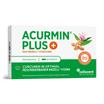
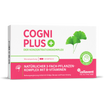
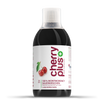

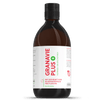
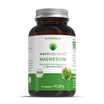
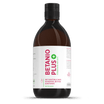




![MSM capsules [methylsulfonylmethane]](http://cellavent.de/cdn/shop/files/CH_essentials-MSM-kapseln-Produktbilder_2025_420x420.png?v=1770314779)